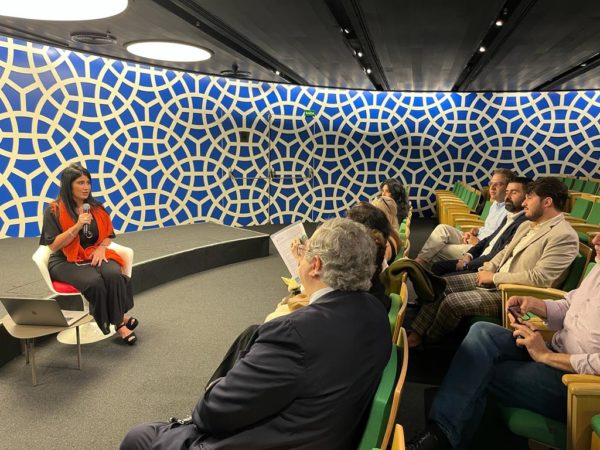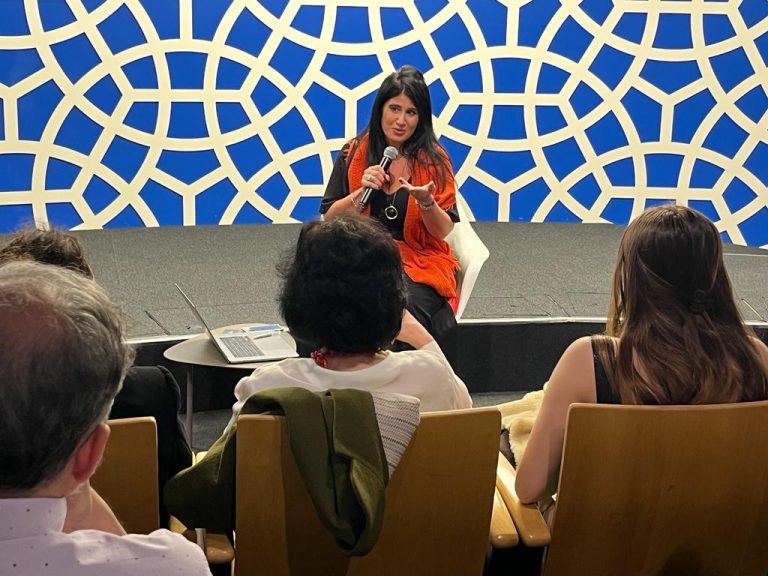São Paulo – “Learning a language like Arabic is a steppingstone to getting to the heart of that culture.” So said the counselor and head of the Consular and Trade and Investment Promotion department of the Embassy of Brazil in Oman, Claudia Assaf (pictured above), during the lecture “Arabic and the Brazilian trade and consular diplomacy” held on Thursday (14) in the headquarters of the Arab-Brazilian Chamber of Commerce (ABCC) in São Paulo.
Packed and ready to go back to Oman, Assaf talked about her rich professional career, pervaded by the learning of Arabic. The Arab Brazilian has a degree in mathematic and started working in technology at early age. Then, aiming to improve her Arabic, she moved to Syria, the homeland of her grandparents, for two years. This was the starting point for her experience abroad. “Arabic helped in my professional rise,” she said.
Assaf worked as a flight attendant at Bahrain-based airline Gulf Air. Due to her fluent Arabic and professional experience, she was invited to work at the royal wing of Gulf Air in the United Arab Emirates, serving the emir of Abu Dhabi and his family as a flight attendant and catering manager of royal planes. Her career as a flight attendant spanned for eight years.

With all this baggage, back to Brazil, Assaf decided to specialize in International Relations and study for entering the Rio Branco Institute. A few years later, she entered the diplomatic career. Assaf has worked in nearly all embassies in the Gulf region, and her dream now is working at the embassy of Brazil in Abu Dhabi, UAE, to complete her experiences across the GCC states.
The counsellor has a book on the topic, Diário de Bordo – um voo com destino à carreira diplomática [Logbook: A flight bound to the diplomatic career], where she talks about her life experience. Assaf is also an Arabic teacher for Brazilians and has a page on Instagram (@ddd.arabe) where she gives tips on diplomacy and Arabic.
“Those who study languages do it to get to the heart of that culture, make connections. When you’re in an Arab country and say some colloquial words in its language, people are wowed as they don’t expect you to speak [Arabic], so they are happy,” said Assaf.
She said you have to learn classic Arabic to be able to communicate in all Arab countries. “Those who don’t want to stop short must learn the classic Arabic, which isn’t purely literary, and the colloquial of that country. But the classic [Arabic] is understood by all,” she said.
Many ask Assaf why studying Arabic. “I focused on studying Arabic, and the journey brought me everything from a job in aviation to diplomacy. Thanks to the Arabic, doors have opened,” she said.
Translation by Guilherme Miranda




